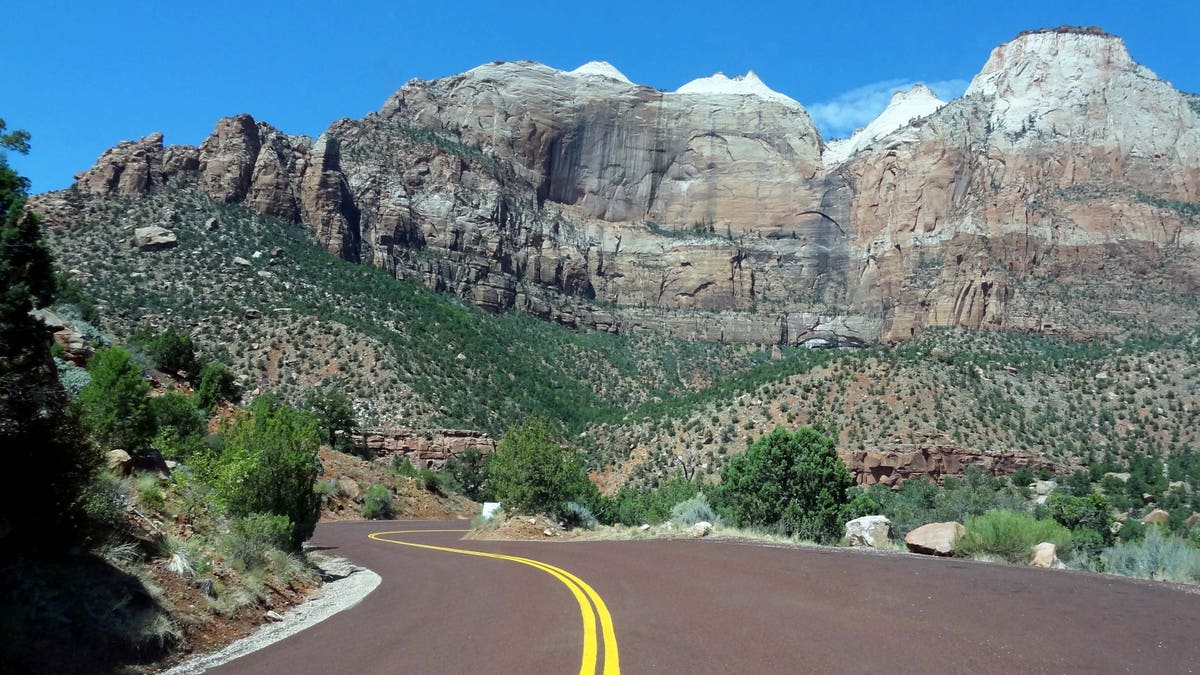
Utah's Zion National Park is seeing a surge of visitors in early 2017. (Reuters)
Although the U.S. marked its national parks centennial in 2016, the end of celebratory free passes hasn't kept visitors from flooding into Utah's Zion National Park, some 160 miles from Salt Lake City.
Park officials report that while winter is usually the slow season at Zion, the 2016-2017 winter is seeing so many travelers coming to the park that there have been traffic backups on the road leading into the site. The Associated Press reports that Zion is set to hit four million visitors in 2016 (final numbers are being tallied now), and that some cars have been exempted from the $30-per-vehicle park fee in order to speed up the queue and keep it from spilling over into the nearby town of Springdale.
Currently, the park is staffed from 9 a.m. to midnight every day year round, but in the past Zion relied on the less-busy times of year to balance out the summer high season. Employees at Zion, like at other national parks, often have second jobs during the months when parks are closed or get fewer visitors, and the unexpected tourism bump has sent staff members into a tailspin. "[Winter] used to be a time to breathe, regroup, and rehire," park ranger John Marciano told the AP. "Many of the park rangers have different positions. We are stretched so thin we have to rotate positions."
While more tourism, and the money that comes with the additional visitors, seems like it would be a good thing, over-visiting can have its downsides. As the sixth most-visited national park in the United States, Zion has seen its visitor numbers rise a whopping 35 percent over the past decade. The park, which is famed for its rocky red landscape, including Angels Landing, a rock about 1,500 feet above the Virgin River, is a hugely popular photography site.
More From Conde Nast Traveler
The four million visitors and the resulting eight million feet have caused erosion along the park's hiking paths, and guest facilities like bathrooms and campgrounds are "overwhelmed." Zion National Park's officials have discussed some preliminary measures for restricting tourism, but a park spokeswoman said that the solution would likely be "a lot of little things." Those "little things" could include timed entries, limiting the number of people permitted to camp overnight, and implementing a soil-fortification program.
Zion officials will present their plan to prevent overcrowding and protect the soil in the park by 2018, so stay tuned.
See Utah's Zion National Park Like You've Never Seen It Before
